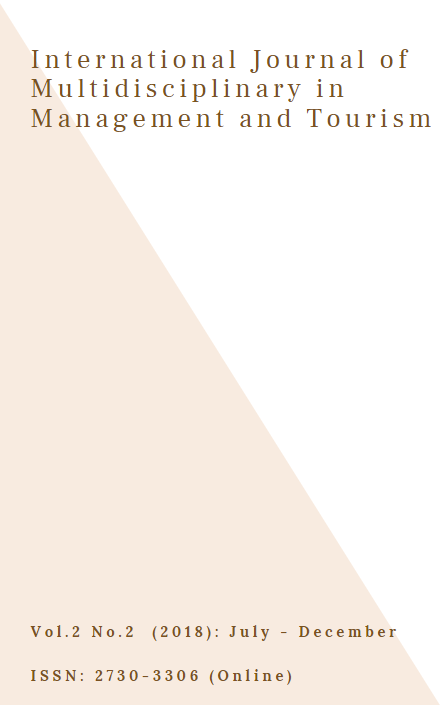Intervention Activities Model Development for Drinking Behaviors
Main Article Content
Abstract
The purposes of this study were to develop and evaluate the effectiveness of the activities model for drinking behaviors changes in alcoholic patients. Activity model is based upon the Buddhist Psychological Counseling, and Occupational Therapy. The model activities had an aggregate IOC of 0.18
The effectiveness of the activity model was assessed using 40 purposively selected alcoholic patients from the Chiang Mai Thanyarak Hospital. Data were collected three times, before the experimental, after the experimental 4 weeks and follow-up 4 weeks, and were analyzed by means, standard deviation, MANOVA with repeated measures, at the statistical significance level of 0.05. The results showed that the activities model the average scores of attitude and practice of the experimental were significantly different at 0.05 level from those of the control groups. Continue of the experimental and control groups were different a significantly at the 0.05 level. Experimental group had drinking behaviors change from baseline in severe alcohol misuse to low-level alcohol use.
Article Details
References
Psychiatry Hospital Rachaseema Rachanakhareen, Department of mental health. (2010). Annual Reports B.E.2552. Nakhon Rachaseema: Psychiatry Hospital Rachaseema Rachanakhareen.
Thanyarak Institute (2007). Therapy Statistic for patients fiscal B.E.2548-2550. Pathumthanee: Thanyarak Institute.
Phokeaw, S. (1997). The Concept of Psychological Counseling and point of view from experience. Bangkok: Chulalongkorn University.
Ajzen, I. (2002). Residual effects of past on later behavior : Habituation and reasoned action perpectives. Pers Soc Psychol Rev. , 6, 107-122.
Boer, H. and Seydel, E.R., (1996). Protection motivation theory. In Connor M, Norman P. editors. Predicting health behavior. Buckingham: Open University Press.
Rebeiro, K. J. (1998). Occupation-as-mean to mental health: A review of literature, and a call for research. Canadian Journal of Occupational Therapy, 65, 12-19.

